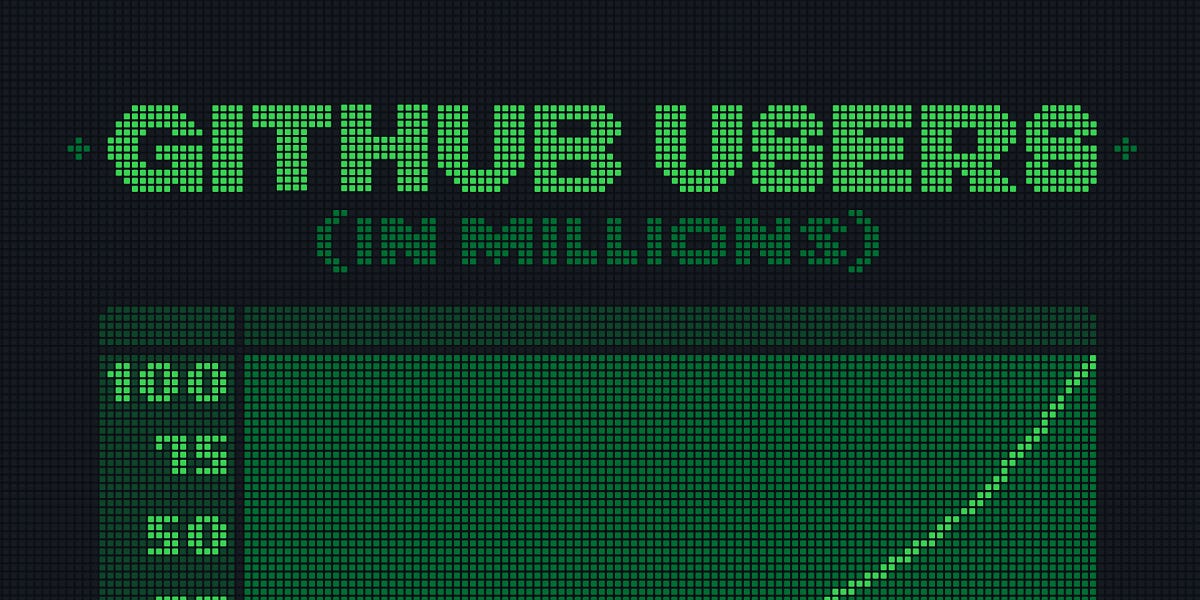🌱How Github grows and makes money

🌈 Abstract
The article discusses the growth story of GitHub, a popular platform for software developers, from 2018 to 2023. It covers the key factors behind GitHub's remarkable growth, including its acquisition by Microsoft, its unwavering focus on developer-centric positioning, its innovative product development, and its strong cultural values.
🙋 Q&A
[01] The 2018 to 2023 Growth Story
1. What were the key events and factors that contributed to GitHub's growth during this period?
- Microsoft's acquisition of GitHub in 2018 for $7.5 billion, which was initially met with some skepticism in the developer community
- GitHub's ability to maintain its developer-friendly culture and positioning despite the Microsoft acquisition
- GitHub's continuous improvement of features and tools that streamlined developers' workflows, such as pull requests, issue tracking, and GitHub Actions
- GitHub's focus on enhancing developer productivity through AI-powered tools like GitHub Copilot
2. How did GitHub's cultural values and community engagement contribute to its growth?
- GitHub's deep-rooted commitment to open-source and its "open-source at heart" culture
- GitHub's embrace of a remote-first work culture and its mastery of asynchronous communication
- GitHub's meritocratic approach where ideas matter more than titles
- GitHub's dedication to continuous learning and innovation, as evidenced by initiatives like GitHub Skills and internal hackathons
- GitHub's community-driven development approach, where product decisions are heavily influenced by user feedback
[02] GitHub's Monetization Strategies
1. What are the key revenue streams and monetization tactics employed by GitHub?
- Subscription-based plans for individual developers, small/medium teams, and large enterprises
- GitHub Enterprise, which offers advanced features and tools for large organizations
- GitHub Copilot, an AI-powered coding assistant that has become a significant revenue driver
- GitHub Marketplace, which allows third-party developers to sell tools and extensions, with GitHub earning a commission on sales
- Additional services like GitHub Actions (automation and CI/CD) and GitHub Packages (package management), which are likely monetized through usage-based fees or included in higher-tier plans
2. How has GitHub balanced its growth with maintaining its developer-centric culture and values?
- GitHub has continued to emphasize its cultural values, such as being customer-obsessed, embracing a growth mindset, and fostering collaboration, even as the company has scaled rapidly
- GitHub's careers page and other resources showcase the company's commitment to preserving its cultural identity and developer-friendly ethos
[03] Lessons for Other Products and Organizations
1. What are the key lessons that other products and organizations can learn from GitHub's growth story?
- Maintaining a strong, unwavering focus on the needs and experiences of your target users, even in the face of major changes (e.g., acquisitions)
- Continuously innovating and evolving your product to stay relevant and attractive to your user base
- Fostering a strong, values-driven culture that aligns with your target audience and helps you attract and retain top talent
- Engaging with your user community and incorporating their feedback into your product development process
- Exploring new revenue streams and monetization strategies, such as AI-powered tools and marketplace models, to drive growth